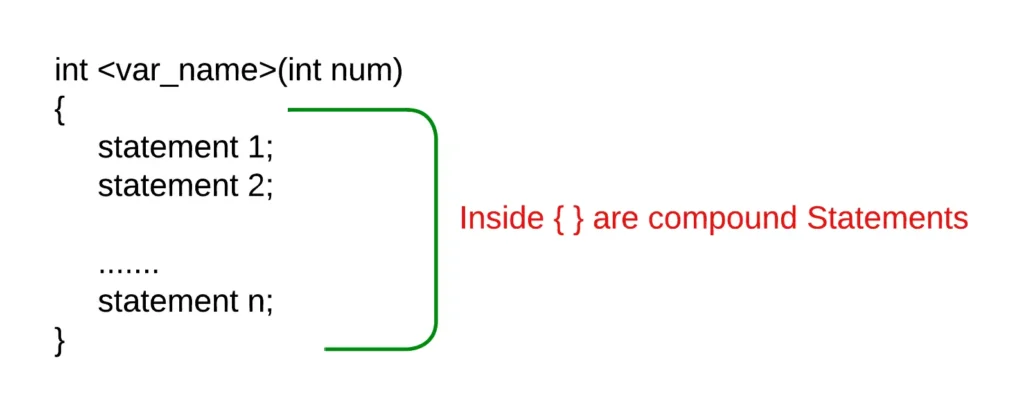- Compound statement in C is also called a block. A block is a set of statements that are enclosed within the flower braces { }.
- This grouping allows you to treat multiple statements as a single unit, making your code more organized and controllable.

Syntax:
{
statement1;
statement2;
// ...
statementN;
}
How are Compound Statements Used in C?
Compound statements play a crucial role in structuring your C code and are frequently used in:
Control Flow Structures:
- The body of if, else, for, while, and do-while statements often consists of compound statements.
Functions:
- The entire set of statements within a function’s definition forms a compound statement.
Local Scope:
- Variables declared within a compound statement have a scope limited to that block, promoting modularity and preventing name conflicts.
Pros and Cons of Compound Statement in C:
Pros:
- Enhanced Readability: They visually group related statements, making code easier to follow.
- Scope Control: They restrict the visibility of variables to specific blocks, promoting encapsulation.
- Flexibility: They allow complex logic to be organized within control flow structures.
Cons:
- Overhead (Minor): There might be a slight runtime overhead due to the creation of a new scope for variables within the block. However, this is usually negligible in most applications.
